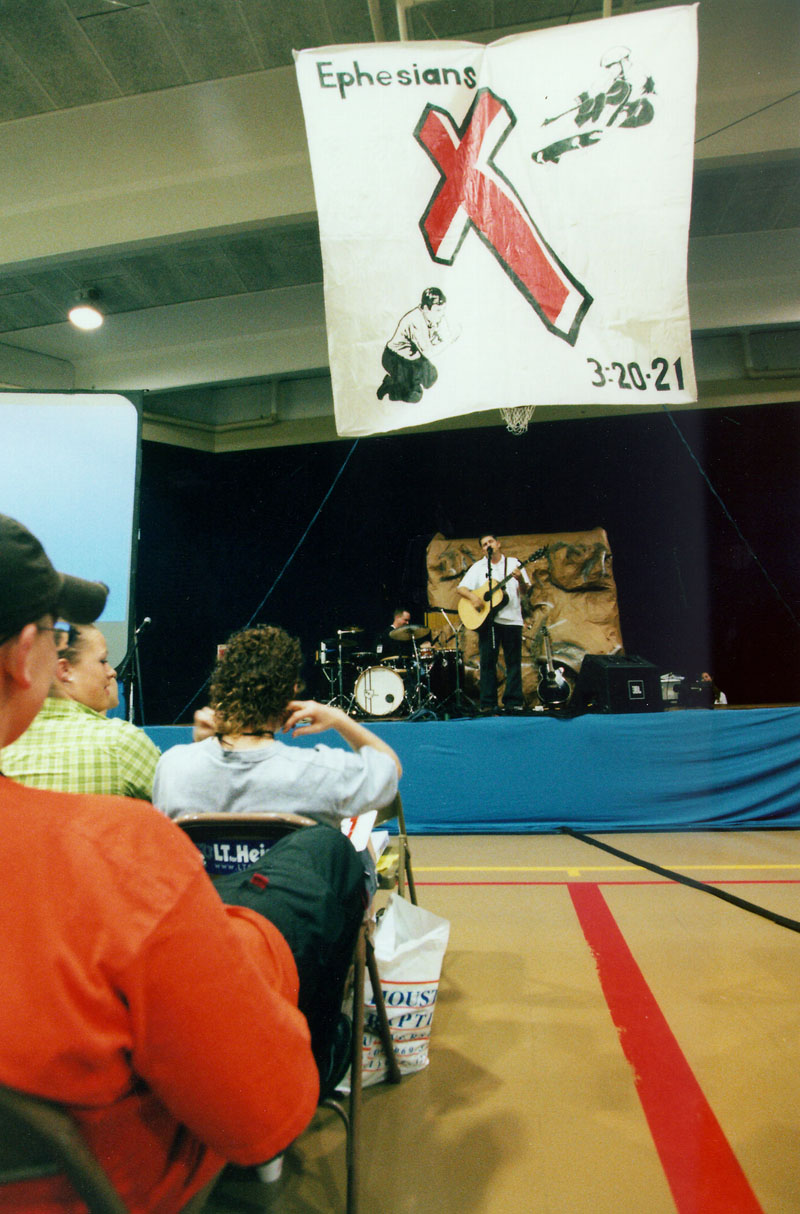
FORT WORTH, Texas (BP)–Ministry to young people in a postmodern culture requires leading them to genuine encounters with God, Bible-based discipleship and an effort to grasp their needs, according to speakers at April’s 2001 Youth Ministry Lab.
One speaker, Richard Ross, noted that the conference theme, “Taking It to the Extreme,” aptly described the attitude of today’s young people and the work God is doing in them.
“It is not business as usual with this generation of students,” said Ross, professor of youth/student ministry at Southwestern Baptist Theological Seminary, where the conference was held.
“Many [Christians] are believing that God is up to something with them, that he has plans to do things through that generation to impact the country and the world far beyond our expectations,” Ross said. “That’s what’s extreme.”
The weekend conference, held April 5-7 in Fort Worth, Texas, is an annual event for youth/student ministers, college and seminary students and teenagers.
Today’s youth are growing up in an increasingly postmodern society, said Paul Turner, manager of youth discipleship and family at LifeWay Christian Resources of the Southern Baptist Convention.
The current worldview tends to include an idea that everything is relative and experiential, said Turner, who led a breakout session on postmodernism.
To today’s youth, life is about relationships and experiences, he said, and very little is absolute or objective.
Society is largely image-driven, Turner said, and youth respond to images.
“Images generate emotions, and people respond to their feelings,” he said.
For youth today, life is about participation, and they don’t just want to be taught, Turner said.
“They don’t give much attention to anything that is not interactive,” he added.
Since youth entrenched in postmodernism tend to respond to images and experiences, Turner said it is very important to provide them with firsthand experiences of God’s love.
“Experience is the currency of the postmodern economy,” Turner said. “We’ve got to find ways not just to teach kids about God, but to give them a face-to-face encounter with God.”
Youth ministry, like any other kind of ministry, must focus not just on Bible study but on the needs of the people being ministered to, said Rick Yount, a professor of foundations of education at Southwestern.
Yount led a session on being disciplers, using a model that builds pillars of thinking, relating and feeling on twin foundations of the Bible and people’s needs, ultimately leading to spiritual growth.
Bible study is always appropriate, Yount said, but “if you do not understand the general needs of young people, you’re not going to connect.”
“I’m not just teaching lessons; I’m teaching people. And I can’t teach people if I don’t know their needs,” Yount added.
“The Bible is God’s eternal truth; that doesn’t change,” he said. “But the needs of the people that are in our class do change.”
If a teacher focuses too heavily on pure Bible study, the class will be like “irrelevant history” to the youth; however, a focus entirely on needs will become “group therapy,” he said.
“The key to this is that over time we deal both with biblical truth and with contemporary day-to-day needs of the people,” Yount said. “We’re ministering to the needs of the people out of a study of the Bible.”
This is reflected in the ministry of Jesus, Yount said. “[Jesus] talked about topics, he talked about concepts, he talked about principles,” the professor said. “He used things that they could see around them, and he tied into where the people lived.”
–30–
(BP) photo posted in the BP Photo Library at http://www.bpnews.net. Photo title: YEARLY YOUTH FOCUS.

















